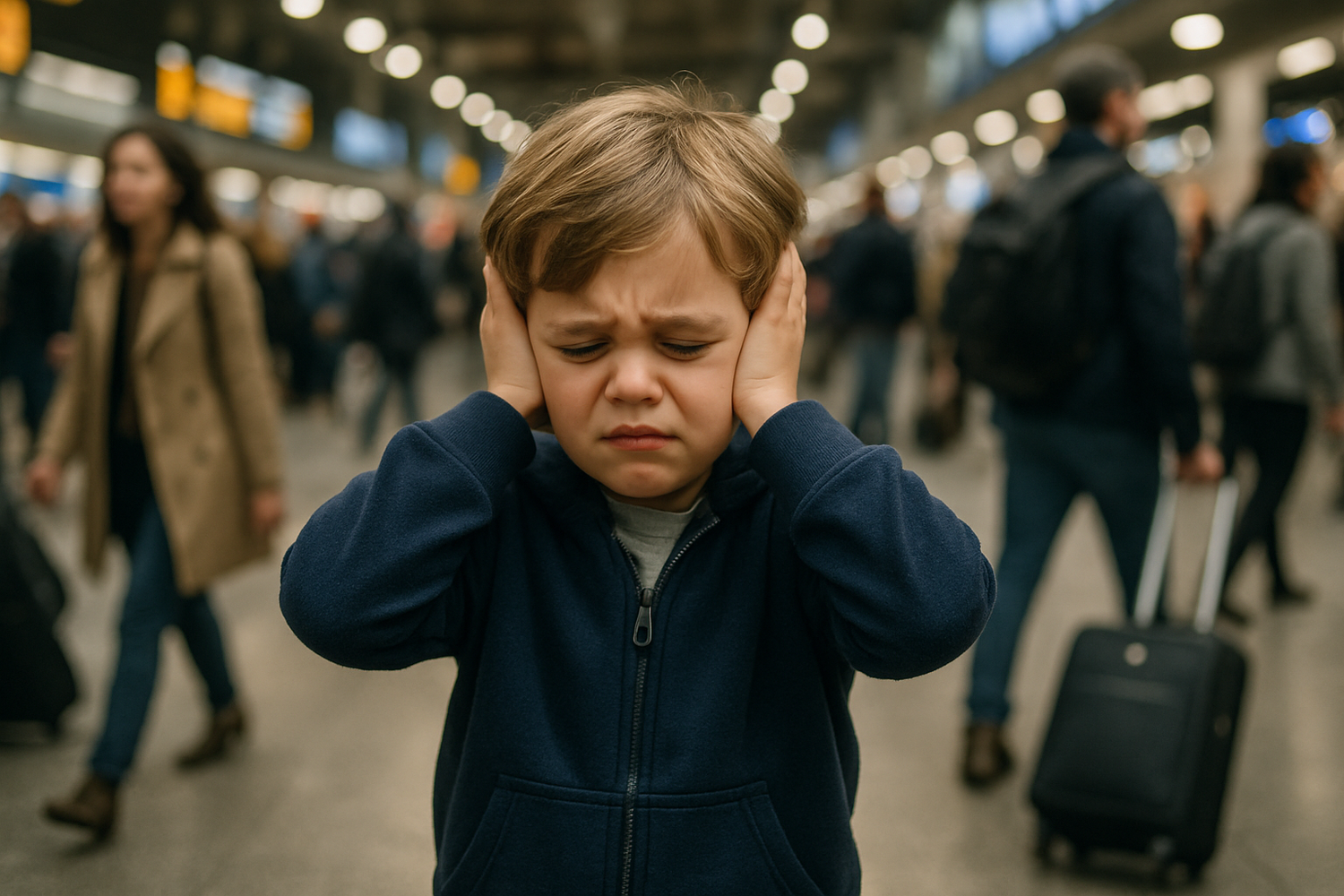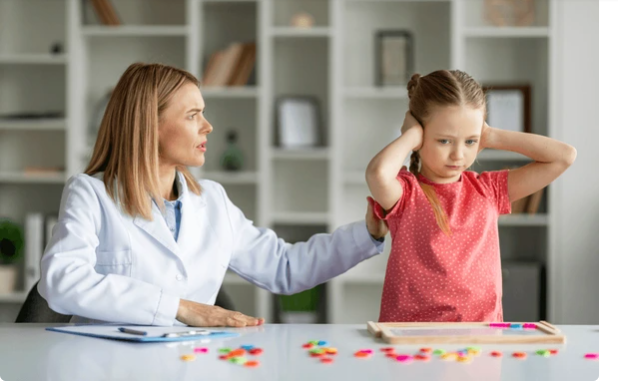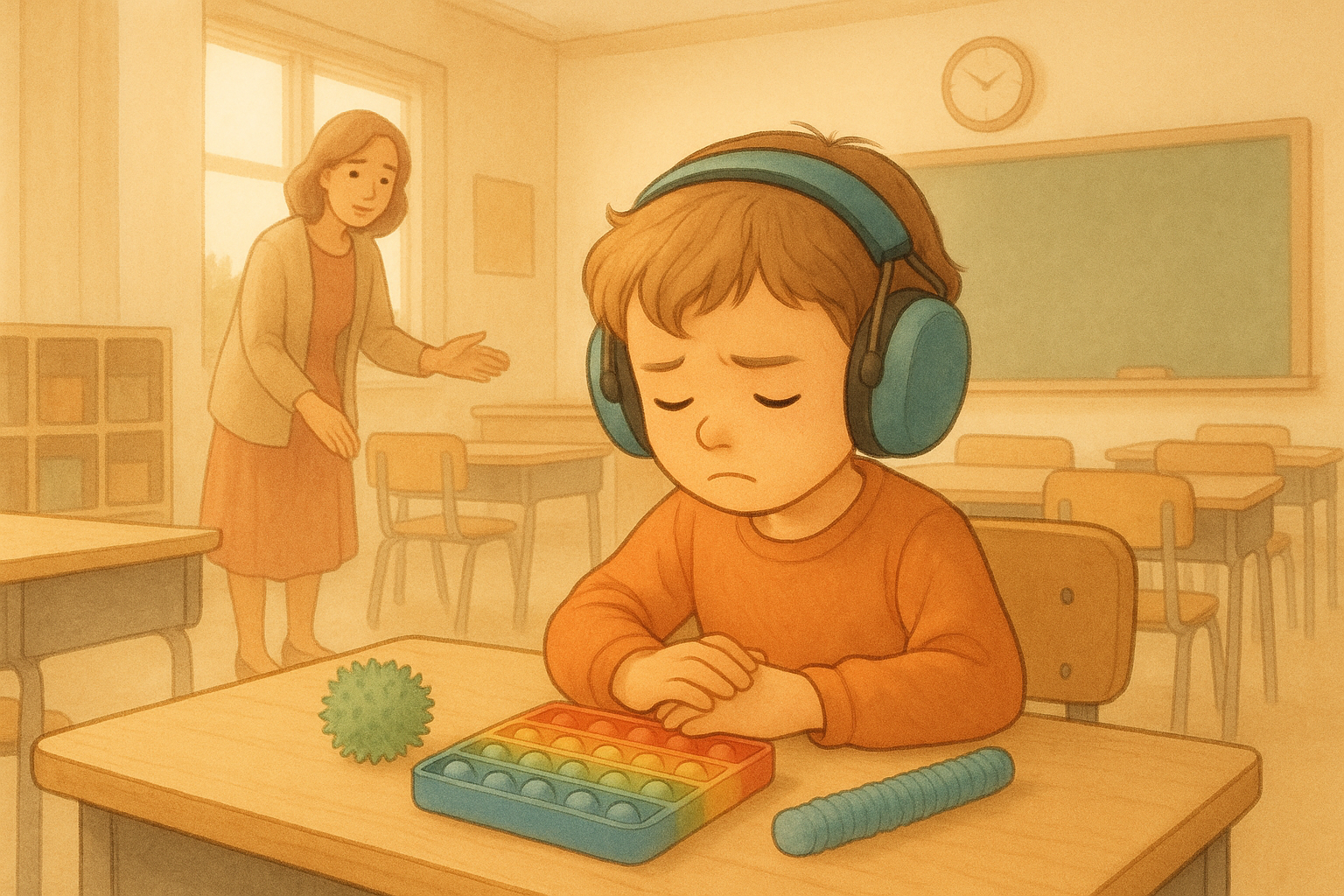How Noise Impacts Children with Autism and ADHD — And What You Can Do
Children with Autism Spectrum Disorder (ASD) and Attention Deficit Hyperactivity Disorder (ADHD) often experience the world differently — and one of the most significant challenges they face is sensory overload, particularly from noise.
Whether it’s the hum of fluorescent lights, the rumble of traffic, or the sudden blast of a school bell, seemingly everyday sounds can feel overwhelming, distressing, or even painful to a neurodivergent child. But there are practical steps you can take to reduce the impact of noise — helping your child feel safer, calmer, and more in control.
In this post, we’ll explore how noise impacts autistic and ADHD children, and share evidence-based solutions, including noise-cancelling products, sensory aids, and sound-friendly environments that can make a world of difference.
Understanding Noise Sensitivity in Neurodiverse Children
Children with autism and ADHD often experience heightened auditory sensitivity, which is a common trait of sensory processing disorder (SPD) — a condition where the brain has trouble receiving and responding to sensory information.
How does this manifest?
-
Autistic children may cover their ears, cry, or flee from loud or unpredictable sounds.
-
Children with ADHD may find background noise incredibly distracting, making it hard to focus or stay on task.
-
Some children may even report feeling physical pain from loud or high-pitched noises.
This sensitivity can lead to meltdowns, anxiety, avoidance behaviours, and difficulties in everyday environments like classrooms, supermarkets, or playgrounds.
The Science: Why Noise Hurts
Noise sensitivity in neurodiverse children is linked to how their brains process sensory input. For some, the auditory filter (which usually helps us ignore unimportant background sounds) doesn’t work as effectively. This means every sound — whether it’s someone talking, a door closing, or a chair scraping — gets processed with equal intensity.
For children with autism, this can mean a state of constant sensory alertness. For those with ADHD, noise can disrupt attention, increase impulsivity, and reduce their ability to regulate emotions.
Solutions: What You Can Do to Help
1. Invest in Noise Cancelling Products
One of the most effective ways to support a child with sound sensitivity is by using noise-cancelling headphones or ear defenders.
Best options for kids:
-
Over-ear noise-cancelling headphones – comfortable, adjustable, and effective at reducing background noise.
-
Children's ear defenders – ideal for school, travel, or crowded public spaces.
-
Silicone earplugs or sound-reducing ear inserts – discreet options for older children and teens.
These products can:
-
Reduce auditory distractions
-
Lower stress levels
-
Promote focus and calm
-
Increase participation in social and educational environments
2. Create a Quiet, Sensory-Friendly Space
Set up a low-stimulation area at home or in school where your child can retreat when overwhelmed.
Include:
-
Soft lighting
-
Sound-absorbing materials (curtains, rugs)
-
Weighted blankets or sensory cushions
-
Access to white noise machines or soothing music
3. Use Visual Supports and Routines
For children with autism and ADHD, predictability can reduce anxiety. Help your child prepare for noisy environments using:
-
Visual schedules
-
Social stories about handling loud places
-
Noise rating scales
4. Advocate in School Settings
Speak to your child’s teachers about noise sensitivity and request reasonable adjustments:
-
A quiet space for breaks
-
Permission to wear ear defenders in class
-
Seating away from noisy areas
-
Acoustic modifications in classrooms (e.g., carpets, wall panels)
5. Explore Professional Support
For ongoing concerns, speak with:
-
Occupational therapists trained in sensory integration
-
Audiologists who can assess auditory processing
-
Educational psychologists for support plans
They can provide assessments and tailored strategies for managing sound sensitivity in children with neurodevelopmental conditions.
Keywords That Matter
For parents searching for support, these are some of the most searched-for terms online:
-
Noise sensitivity in autism
-
Noise-cancelling headphones for autistic children
-
Best ear defenders for ADHD
-
Sound therapy for autism
-
Sensory aids UK
-
How to help child with sound sensitivity
-
Quiet spaces for autistic kids
We’ve carefully curated a selection of noise-reducing products and sensory support tools for neurodiverse children — all available for UK delivery.
Final Thoughts
For children with autism or ADHD, managing noise is about more than comfort — it’s about enabling them to participate fully in daily life, with confidence and security. By understanding the impact of auditory overload and investing in sensory-friendly solutions, you’re taking a powerful step toward inclusion and support.
Small changes — like introducing a pair of ear defenders, adjusting a routine, or creating a quiet corner — can make a huge difference.




Leave a comment
This site is protected by hCaptcha and the hCaptcha Privacy Policy and Terms of Service apply.